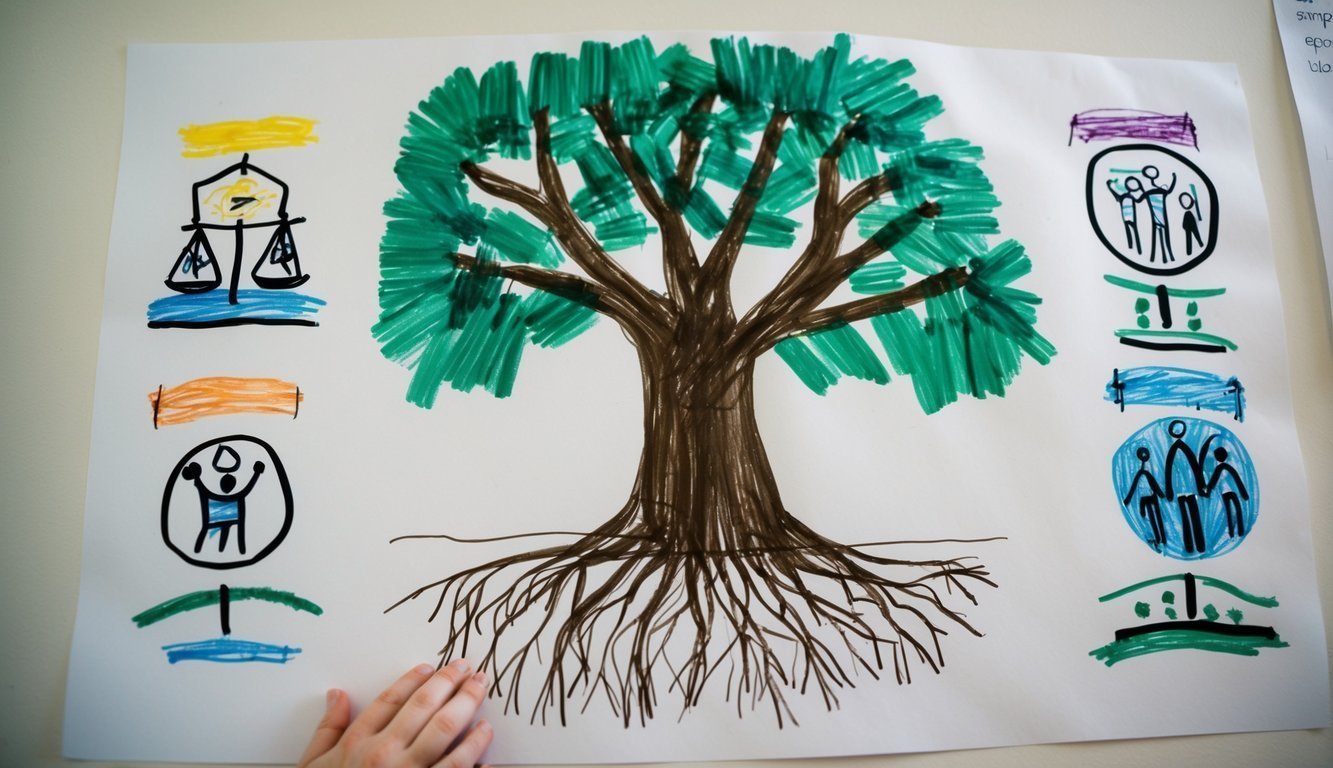PsychNewsDaily Publishers
100 Summit Drive
Burlington, MA, 01803
Telephone: (320) 349-2484
PsychNewsDaily Publishers
100 Summit Drive
Burlington, MA, 01803
Telephone: (320) 349-2484
Developmental psychology examines human growth throughout life, focusing on cognitive, social, emotional, and physical development across various stages, from infancy to late adulthood.

Developmental psychology delves into the various stages of human growth and transformation throughout life. This discipline investigates cognitive, social, and emotional development starting from infancy all the way to adulthood.
Developmental psychology is the empirical examination of how individuals evolve over time. This area encompasses multiple forms of growth, including physical, cognitive, social, intellectual, perceptual, personality, and emotional aspects.
The field scrutinizes the entire human life span, from prenatal stages up to late adulthood. Significant focal points consist of the acquisition of language, formation of identity, and moral development.
Developmental psychologists analyze universal growth patterns as well as unique individual differences. They explore the interplay of nature and nurture in the shaping of human development.
The origins of developmental psychology trace back to Charles Darwin’s observations concerning his children’s development, which established a foundation for the scientific inquiry of human growth.
Jean Piaget’s theory of cognitive development transformed the discipline in the 20th century by asserting that children actively engage in constructing knowledge through their experiences.
Lev Vygotsky highlighted the significance of social interaction and cultural context in cognitive development, emphasizing the critical role of language and social learning in his sociocultural theory.
Other key figures include Erik Erikson, who formulated psychosocial stages of development, and John Bowlby, who focused on the concept of attachment.
Developmental psychologists operate in a range of environments, such as universities, hospitals, educational institutions, and private practices. Their research aims to deepen understanding of human development across various life stages.
Professionals in this field may specialize in particular age groups or areas of development. For instance, some may concentrate on cognitive development in infants, while others focus on social development in adolescents.
Moreover, these psychologists apply their expertise to address real-world challenges. They may design interventions for children experiencing developmental delays or provide guidance to policymakers regarding educational strategies.
In clinical environments, they evaluate developmental growth and diagnose disorders, influencing practices in education, healthcare, and childcare sectors.

Developmental psychology is influenced by several major theories that provide insights into the diverse dimensions of cognitive, social, emotional, and moral growth from infancy to adulthood.
Jean Piaget proposed a theory of cognitive development outlining how children’s thinking evolves through specific stages:
Piaget posited that children actively construct knowledge through their interactions with the environment, stressing the significance of schemas, assimilation, and accommodation in cognitive advancement.
Each stage signifies a qualitative shift in reasoning and understanding. For instance, in the concrete operational phase, children begin to think logically about tangible objects, while the formal operational stage signifies the onset of abstract reasoning capabilities.
Erik Erikson built upon Freud’s psychosexual theory by focusing on psychosocial development across the entire lifespan. His framework consists of eight stages, each identified by a specific crisis or conflict:
Erikson suggested that successfully resolving each crisis fosters specific virtues or strengths. For example, managing the trust vs. mistrust challenge in infancy cultivates the virtue of hope.
His theory underscores the interplay of biological, psychological, and social dynamics in personality and behavior development throughout life.
Sigmund Freud’s psychosexual theory indicates that personality develops through a sequence of stages centered on erogenous zones. The five phases are:
Freud argued that unresolved conflicts during these developmental stages may lead to fixations that shape adult personality. For example, he theorized that excessive gratification or frustration during the oral stage could cause oral fixations like nail-biting or smoking.
His work introduced notions such as the id, ego, and superego, which remain influential in modern psychological theory.
John Bowlby’s attachment theory highlights the significance of early relationships in determining social and emotional growth. Key concepts include:
Bowlby posited that early attachment experiences establish the groundwork for future relationships and emotional regulation. Secure attachments formed in infancy correlate with enhanced social skills, emotional regulation, and mental well-being in later years.
His research has profoundly influenced parenting practices and our comprehension of early relational impact.
Lev Vygotsky’s sociocultural theory emphasizes the importance of sociocultural interactions in cognitive growth. Key elements include:
Vygotsky believed that social interactions with knowledgeable others facilitate children’s development. The ZPD refers to the gap between what a child can accomplish independently and what they can achieve with help.
His theory stresses the role of language and cultural instruments in shaping cognitive functions, significantly impacting educational methods and our understanding of social learning.

Human development is a continuous journey that extends from conception until death, encompassing significant alterations across physical, cognitive, and psychosocial dimensions through various life stages.
Prenatal development commences at conception with swift cell division and organ formation. The fetus acquires sensory abilities and can respond to stimuli from the environment. Post-birth, infants undergo rapid physical and cognitive development.
Newborns swiftly acquire motor skills, advancing from reflexive actions to purposeful movements. Cognitive development accelerates as they begin recognizing faces, grasping object permanence, and undertaking language acquisition.
Strong social-emotional bonds form through attachments to caregivers, laying the groundwork for subsequent social interactions and emotional regulation.
Throughout childhood, physical growth persists as children refine their motor skills and increase their strength. Cognitive functions expand, marked by advancements in memory, attention, and problem-solving capabilities.
Language abilities blossom, allowing for more sophisticated communication. Social development progresses as children learn to connect with peers and comprehend social expectations.
Adolescence heralds significant physical transitions associated with puberty. Cognitive development during this period includes abstract reasoning and enhanced decision-making abilities. A central concern becomes identity formation, as teenagers explore their beliefs and values.
Emotional regulation and peer dynamics gain prominence during this stage, as adolescents seek increasing independence while maintaining reliance on family support.
In early adulthood, individuals often pursue career development and establish long-term relationships. Middle adulthood may present opportunities for career progress and family obligations.
Throughout much of adulthood, cognitive abilities largely remain stable, with certain skills like practical problem-solving improving through experience. Gradual physical changes occur, including diminished sensory sensitivity and slower reaction times.
By late adulthood, noticeable physical changes such as reduced muscle mass and bone density arise. Cognitive alterations may involve slower processing speeds and occasional memory decline.
Psychological well-being often experiences improvement in older age, with older adults exhibiting enhanced emotional regulation. Shifts in social roles occur, emphasizing retirement and grandparenthood.

Human development comprises multiple interconnected domains that influence individuals throughout their lives. These areas interact and impact one another, contributing to overall growth and functionality.
Physical development includes alterations in body size, structure, and functionality. It encompasses increases in height and weight, alongside the development of motor and sensory skills.
Brain maturation is pivotal in physical growth. Myelination, the process of insulating nerve fibers, bolsters the speed and efficiency of neural transmissions.
Hormonal transformations drive significant physical changes, especially during puberty, affecting body composition, sexual attributes, and reproductive functions.
Biological maturation also has repercussions on cognitive and emotional development. The timing of reaching physical milestones can significantly influence social interactions and self-concept.
Cognitive development refers to enhancing mental processes such as thinking, reasoning, and problem-solving. Piaget’s cognitive development theory delineates intellectual maturation stages spanning from infancy to adolescence.
A critical component of cognitive development is language acquisition. Children typically progress predictably in their communication skills, from babbling to constructing complex sentences.
Educational experiences shape cognitive skills, with formal education enhancing literacy, numeracy, and critical thinking abilities. Informal learning through play and social interactions also contributes to cognitive maturation.
Executive functions, such as attention control, working memory, and cognitive flexibility, develop throughout childhood and adolescence, vital for academic success and daily life.
Emotional development entails learning to identify, articulate, and manage one’s feelings. Infants exhibit basic emotions, while older children showcase increasingly sophisticated emotional responses.
Attachment theory elucidates how early relationships affect emotional growth. Secure attachments with caregivers foster healthy emotional regulation and self-worth.
Personality traits emerge and become more stabilized over time. The Big Five model (openness, conscientiousness, extraversion, agreeableness, and neuroticism) provides insights into fundamental aspects of personality.
Temperament, which encompasses individual emotional reactivity and self-regulation, significantly impacts personality evolution, influencing responses to environmental stimuli and interpersonal interactions.
Social development involves acquiring effective interaction skills with others, encompassing the understanding of social norms, development of empathy, and relationship formation.
Foundational social experiences, especially with family, are critical for future social interactions. Peer relationships gain significance as children mature.
Social cognitive theory posits that individuals learn social behaviors via observation and imitation, aiding children in acquiring social skills and cultural norms.
Moral development progresses from egocentric viewpoints to more complex ethical reasoning. Kohlberg’s theory outlines moral evolution stages from childhood through adulthood.
Social competence involves effectively navigating various social settings, encompassing skills like communication, conflict resolution, and teamwork, essential for relationship building.
Developmental psychology explores the intricate interplay among various factors impacting human growth and behavior throughout the lifespan. These influences span genetic predispositions and environmental experiences, each determining an individual’s developmental path.
The nature versus nurture debate remains a fundamental topic in developmental psychology, examining the respective roles of genetic factors and environmental conditions in shaping human development.
Genetic contributions are significant in establishing physical characteristics, temperament, and tendencies toward specific behaviors or conditions. Twin studies have yielded meaningful insights into the heritability of numerous traits.
Environmental influences, including familial dynamics, educational experiences, and socioeconomic status, profoundly impact development as well. These external factors can mold cognitive abilities, social skills, and emotional regulation.
Contemporary research proposes a more integrated perspective, highlighting gene-environment interactions. Epigenetics investigates how environmental conditions can modify gene expression, blurring the distinctions between nature and nurture.
Parenting styles and early experiences have a profound impact on cognitive, social, and emotional growth.
Secure attachments formed in infancy create a basis for healthy relationships and emotional control later in life.
Authoritative parenting, characterized by warmth and consistent discipline, correlates with positive outcomes in academic achievement and social skills.
In contrast, neglectful or abusive parenting may lead to developmental challenges and psychological distress.
Early childhood education and enriching environments foster cognitive growth and preparedness for school.
Exposure to language-rich surroundings boosts verbal abilities and literacy.
Adverse childhood experiences, such as trauma or chronic stress, can have enduring effects on brain development and mental health, though protective factors like supportive relationships can alleviate these adverse consequences.
Cultural context substantially influences development, with varying societies prioritizing distinct values, behaviors, and developmental milestones that shape child growth and learning.
Social exchanges with peers, family, and educators contribute to the development of social competencies, empathy, and moral reasoning, serving as behavioral models and avenues for social learning.
Socioeconomic factors, such as access to resources and quality education, can notably impact cognitive growth and academic success, as children from disadvantaged backgrounds may encounter additional obstacles to realizing their full potential.
In the digital age, exposure to media and technology increasingly shapes development. While it provides educational opportunities, excessive screen time may adversely affect social skills and attention capacities.
Brain plasticity denotes the ability of the brain to adapt based on experiences, a capacity most pronounced during critical developmental periods yet continuing throughout one’s life.
Variations in temperament and personality traits lead to diverse developmental patterns, influencing children’s responses to their environments and their ability to overcome challenges.
Resilience, defined as the ability to adapt positively in the face of adversity, varies among individuals, with protective factors such as supportive relationships and adept problem-solving skills enhancing resilience against developmental challenges.
Neurodiversity acknowledges that variations in neurological development are natural and beneficial, emphasizing the strengths and unique contributions of individuals with differing neurological profiles.
The field of developmental psychology employs a range of methodologies to study human growth and transformation throughout life, necessitating a careful balance between scientific integrity and ethical considerations to safeguard participants, particularly vulnerable groups like children.
Experimental studies in developmental psychology involve the manipulation of variables to assess their impact on behaviors or cognitive processes. Researchers may adjust environmental elements or introduce varied stimuli to participants.
Conversely, observational studies focus on examining natural behaviors without intervention, a particularly effective method for studying infants and young children.
Both methods present distinct advantages and challenges; while experimental studies provide more control, they might lack ecological validity. Observational studies yield rich, contextual data, yet they can be influenced by confounding variables.
Ethical considerations hold paramount significance for both methodologies, underscoring the necessity for informed consent, minimal risk, and age-appropriate practices when engaging with developing individuals.
Longitudinal studies track the same group of individuals over extended periods, often spanning years or even decades. This approach allows researchers to directly observe developmental changes and identify unique individual paths.
Cross-sectional studies involve comparing various age groups at a single moment in time. Though more efficient, this method may overlook subtle developmental shifts and cohort-specific effects.
Both approaches provide valuable insights into developmental milestones and processes. Researchers often integrate these strategies to achieve a comprehensive understanding of human growth.
Developmental psychologists encounter unique challenges in their research. Ensuring generalizability across varied populations and cultures is essential, yet often difficult.
Recognizing critical and sensitive periods within development demands meticulous timing and a long-term commitment from researchers. Ethical considerations need to be prioritized when investigating these vulnerable stages.
Maintaining participant engagement over extended periods poses an additional challenge, particularly in longitudinal studies, where attrition can significantly skew results and analyses.
Striking a balance between scientific objectivity and the responsibility to protect and support developing populations is an ongoing ethical concern in this domain.
“`